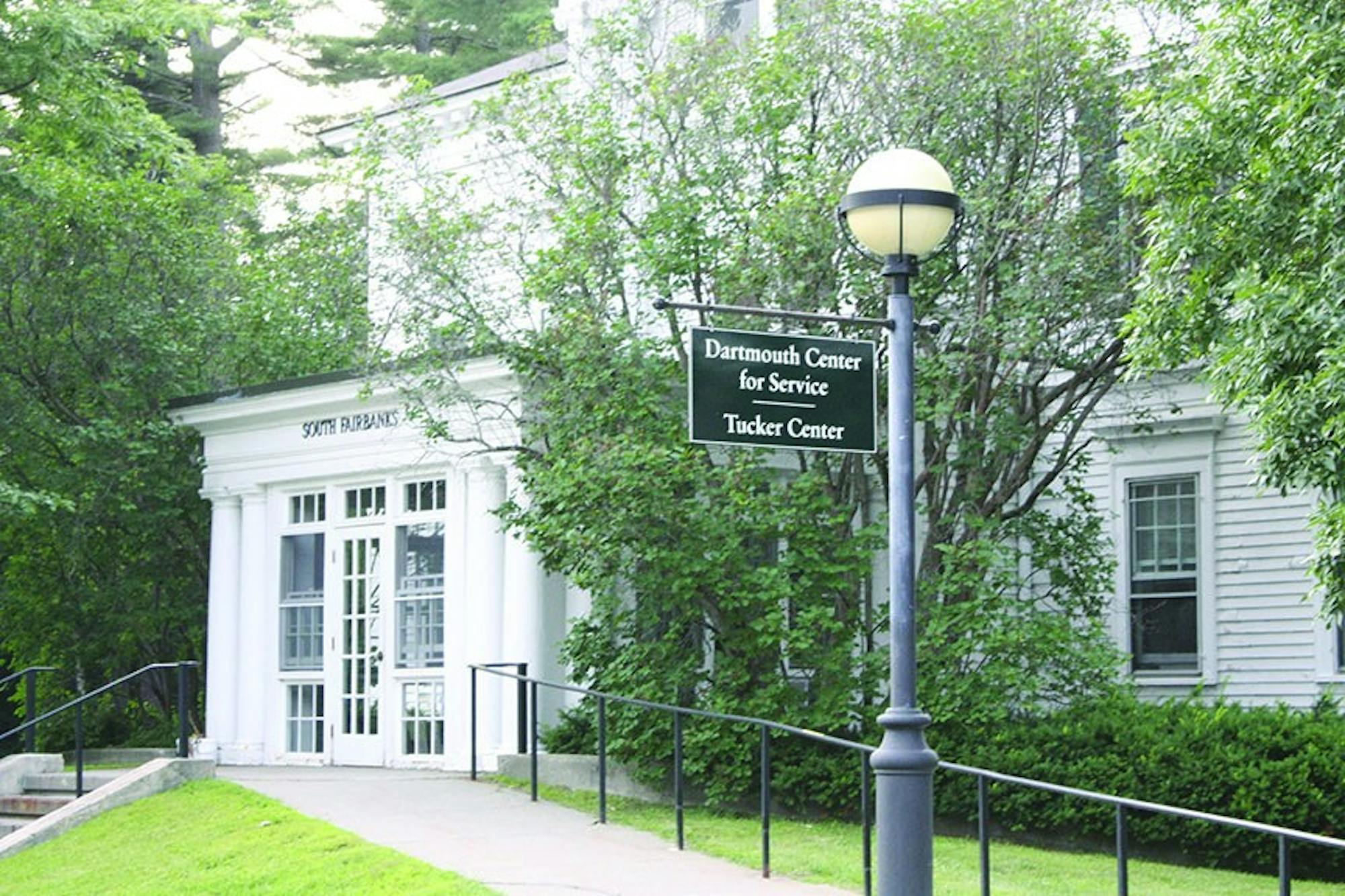Last week, the Dartmouth community concluded its celebrations of Ramadan, a Muslim holiday when all healthy and able-bodied Muslim adults are invited to partake in fasting, or sawm, during the ninth month of the Majri calendar. This year, Ramadan began in the evening of March 22 — the first sighting of the crescent moon — and ended with its re-sighting on April 20.
According to the Metropolitan Museum of Art, participation in Ramadan is considered one of the Five Pillars of Islam, fundamental to living and practicing the tradition of the Prophet Muhammad. Participants are allowed two meals a day: a pre-dawn meal, suhur, and a post-sunset meal, iftar. According to Al-Nur member Mursal Ehsan ’26, this was the first year since the onset of the COVID-19 pandemic that students observed each iftar in a communal space. It was also the first Ramadan since the Tucker Center hired Muslim chaplain Abdul Rahman Latif.
“[During] COVID, and before our chaplain came [to Dartmouth this fall], I heard that we were missing that consistent community, even though everyone was trying very hard to recreate it,” Ehsan said. “And now we have it back through iftar.”
Ehsan also praised Dartmouth Dining for their “innovation” and “willingness to accommodate” the holiday’s observers, including the addition of a halal refrigerator — which students could use for their pre-dawn meal — to the Muslim prayer room at North Fairbanks Hall.
Majid Hejazi, Al-Nur member and first-year Thayer masters of engineering management student, said that the majority of the iftars took place in South Fairbanks Hall, with some held at the Collis Center and House Center B, known colloquially as the Cube.
Al-Nur member Aamish Beg ’26 said the diversity of the iftars’ cuisine, which included Arab, Indian, Mexican, Thai and Turkish dishes, represented the holiday’s participants. Beg added that Ramadan is observed broadly throughout the Islamic world, regardless of nationality or sect.
This year’s celebrations saw a “massive growth” in participants, according to Hejazi. He said the iftars drew around 40 individuals on weekdays and around 60 on Saturdays, when the community opened the event to the local Muslim community.
“Even last year, there was a very limited number of iftars and prayers,” Hejazi said. “Even the presence of other students was very low. This year … normally, 60 or 70% of the time, we didn’t have enough space to [accommodate every observer]. The prayer room was completely full.”
According to Beg, Al-Nur members fostered strong relationships with members of the Upper Valley Muslim community. He said that older community members served “not only as mentors, but as brothers and sisters undertaking this journey with us.”
“We would pray and eat [and] get to know our brothers and sisters,” Beg said. “Realistically, we knew there were more of us [in the area], but getting to interact with them and hear their wisdom and stories was something special.”
In addition to the Upper Valley Muslim community, many non-Muslim members of the Dartmouth community joined Ramadan events, Abdul Rahman said. Abdul Rahman credited non-Muslim attendance to the efforts of Muslim students.
Ehsan said she initially worried that some non-Muslim students may form “misconceptions” based on “hastily conceived” conclusions about fasting. She explained that fasting rituals, which simulate “temporary hunger,” expose participants to the “clarity and empathy” of their fellow observers and help them strive for stronger character and “spiritual connection to faith.”
Ultimately, non-Muslim students were open to participating in traditions, she said.
According to Ehsan, who co-led the Ramadan Opening Ceremony on March 31 with Al-Nur president Amina Zoklat ’23, around 50 non-Muslim students attended the event. The programming included adhan, or the call to prayer, and the recitation of Quranic passages, Eshan said.
Eid Gala, a large-scale celebration of Eid al-Fitr, which marks the end of the month of Ramadan, drew in large crowds, Abdul Rahman added. The Gala was held at Collis Common Ground on April 22 and was organized by Al-Nur members Maeen Arslan ’23, Noor Boukari ’26 and Hejazi. The Eid prayer at Collis Common Ground on April 21 also brought many participants, Hejazi said.
“We were impressed and awed by the number of people who showed up,” Hejazi said. “It was very comforting for Muslim students because [some of us]come from Muslim countries, and when we came to [Hanover], Muslim students were a very small minority in a town that was small enough, as is. Seeing all those people gathered in one place was a great comfort.”
In addition to fasting and the Eid Gala, students also participated in daily evening prayer. During the last 10 nights of Ramadan, approximately 15 students participated in night prayer from 9 p.m. to 5 a.m., Ehsan said. While Ehsan called the night prayer the most “strenuous” part of Ramadan, she explained that praying “in congregation” was both non-compulsory and a “very important” way to ensure the prayers were “reverted back to the Prophet and heard as a collective.”
According to Hejazi, Abdul Latif, Ehsan and Zoklat were instrumental in preparing for the holiday. Abdul Rahman said that the organizers received support from various centers on campus, including the Office of Pluralism and Leadership and the Student Wellness Center. He added that he believes his presence emboldened students to take initiative and put in extra effort.
“The importance of a chaplain’s [presence]… is that it encourages students to do more themselves,” Abdul Rahman said. “When students know they have support or someone has their back, they’re willing to go out of their way to make an effort… and put something together.”




